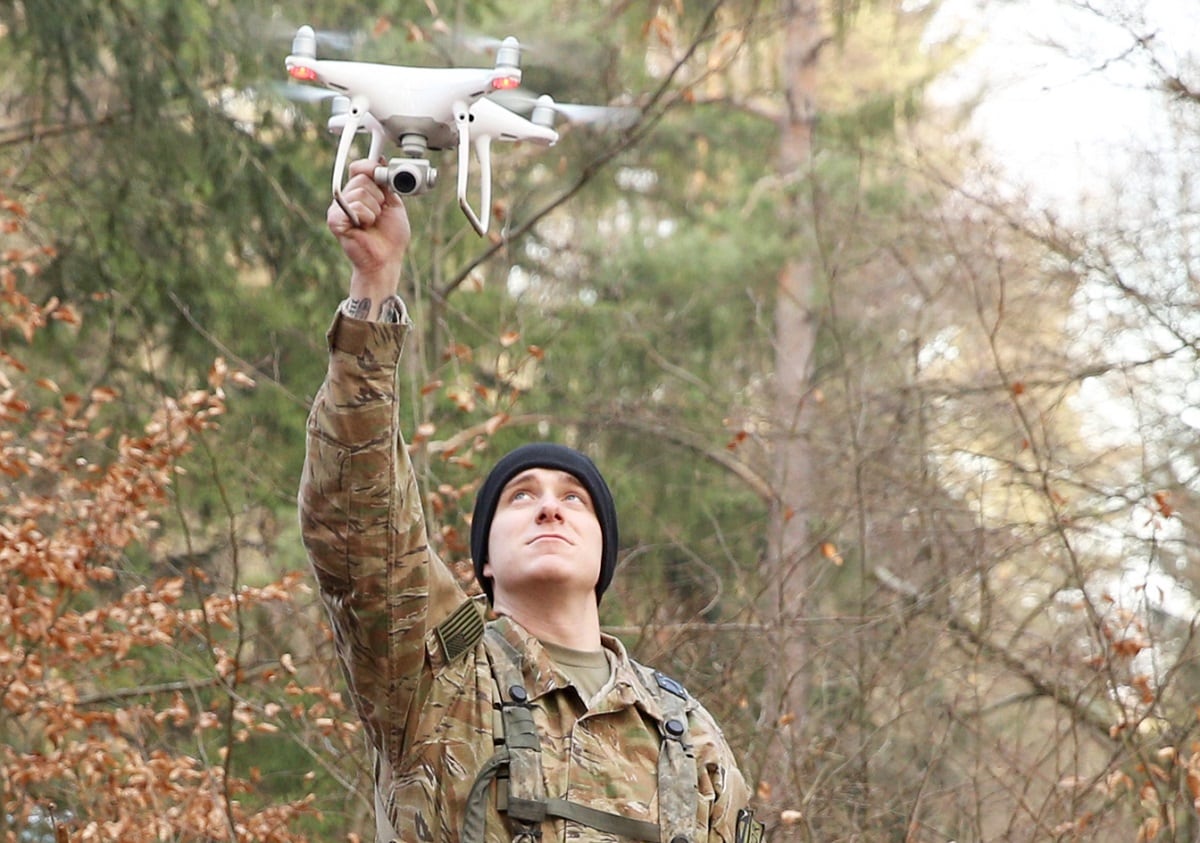By now, most people have heard of the People’s Republic of China-based company Shenzhen DJI Sciences and Technologies Ltd. It isn’t hard to walk into any electronic store across the country and find DJI drones prominently displayed. PRC drones dominate more than 90% of the United States’ hobby drone market, 70% of the industrial drone market and over 80% of the first responder market, according to a whitepaper by the Association for Uncrewed Vehicle Systems International.
DJI rightly receives the lion’s share of attention from Washington’s national security watchers. In December 2020, DJI was added to the U.S. entities list over concerns about its platforms being used for foreign espionage, and Congress continues to introduce legislation targeting the company, albeit with mixed results.
Now another Chinese drone manufacturer is rising in the ranks: Autel Robotics. In December 2021, Autel’s U.S. market share was 15%, and like DJI, it receives PRC government funding and preferential tax rates.
Autel has become the drone of choice for several American law enforcement agencies. The company even sells drones to U.S. federal agencies, including the Department of Agriculture. And until recently, the United States Capitol Police was preparing to employ Autel drones.
RELATED

Currently, there is no federal legal barrier preventing law enforcement agencies from purchasing Autel drones. And only seven states have banned Chinese-made drones. This is a problem that needs to be addressed.
PRC drones pose an unacceptable national security risk because all Chinese companies, by law, must cooperate with the Chinese Communist Party government’s foreign espionage efforts. Drones are now mapping American critical infrastructure and countless other important features, locations and facilities. Drones provide detailed images and other technical data that, no matter how good your space-based satellite (or “weather balloon”) may be, you cannot collect any other way.
Some drones from the PRC have weak flight systems and unsecured communication links between the drone and the operator, enabling data such as telemetry and live video feeds to be intercepted if not properly encrypted. Some PRC drones are also susceptible to malware infections and cyberattacks, which could be used to launch distributed denial-of-service attacks.
The real challenge for Washington as it confronts PRC technology threats continues to be an approach that favors targeting the leading company in the market instead of adopting a sector-based approach. This narrow strategy ensures we fail to comprehensively address technology threats emanating from the PRC. This dilemma holds true across various industries where one PRC company has dominated: CATL with electric batteries, the TikTok app, and Huawei with 5G. If Washington does not act now, we risk Autel becoming a new PRC behemoth.
In response, the Biden administration should issue an executive order to promote and protect American competitiveness in the drone market.
First, the administration should order the grounding of all PRC-made drones used by federal agencies and prohibit organizations from using federal funds and grants to purchase adversarial drone technology. An official policy would signal a public declaration of the PRC drone threat to the public and drone users community.
Second, the White House should also order the departments of Commerce and Defense to conduct investigations into Autel and all PRC-made drone companies and their supply chains. These investigations should assess national security threats and association with the PRC military and government, as well as add additional PRC drone companies, including Autel, to the entity list. Additionally, the Defense Department’s listing of DJI as part of its 1260H Chinese military companies list should be expanded to other PRC drone companies, including Autel. The Department of Homeland Security must also issue an updated threat alert and restrict the use of PRC drones in key sectors, including critical infrastructure and law enforcement organizations.
Third, Congress should continue to expand on existing statutory restrictions on Defense Department contractors that use PRC drones as well as support a broader federal ban on PRC drones. Additionally, Congress should investigate the intense lobbying practices by PRC drone companies at the federal, state and local levels.
Finally, the U.S. government must also work closely with international partners and allies to share information about security risks associated with Autel, DJI and other PRC drone companies. Like with the 5G fight, an effective counter-PRC strategy must include an international diplomatic and educational component.
Policymakers in Washington should not be lulled into thinking that the Chinese drone threat has been addressed. In fact, it is getting worse as the number of companies proliferate and as each PRC drone company expands its market presence and market share. We understand that the agenda for the administration and Congress we have outlined to respond to this challenge is ambitious, but this is what is required to secure U.S. critical infrastructure and the American people.
Eric Sayers is a nonresident fellow at the American Enterprise Institute think tank, where he focuses on Asia-Pacific defense policy and strategy as well as U.S.-China technology policy. Klon Kitchen is a nonresident senior fellow at AEI, where he focuses on the intersection of national security, defense technologies and innovation.







